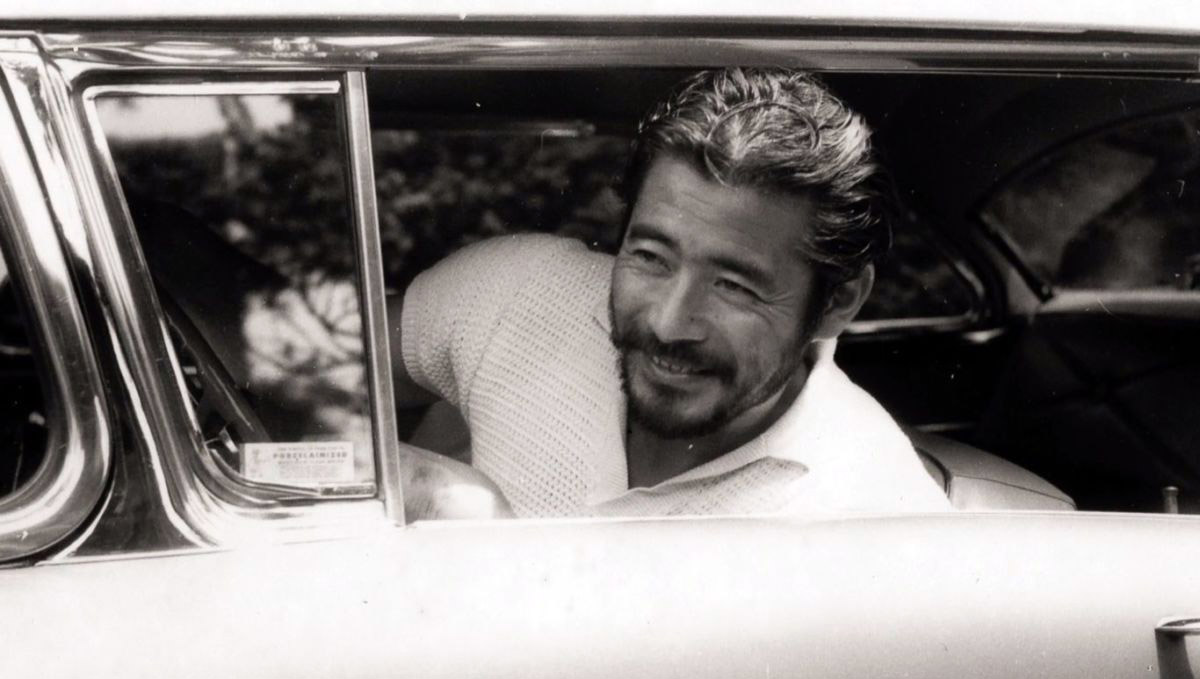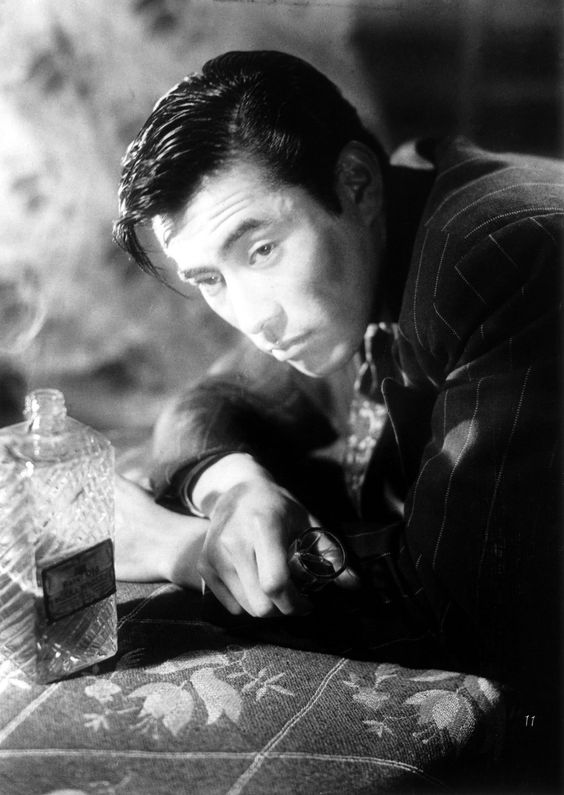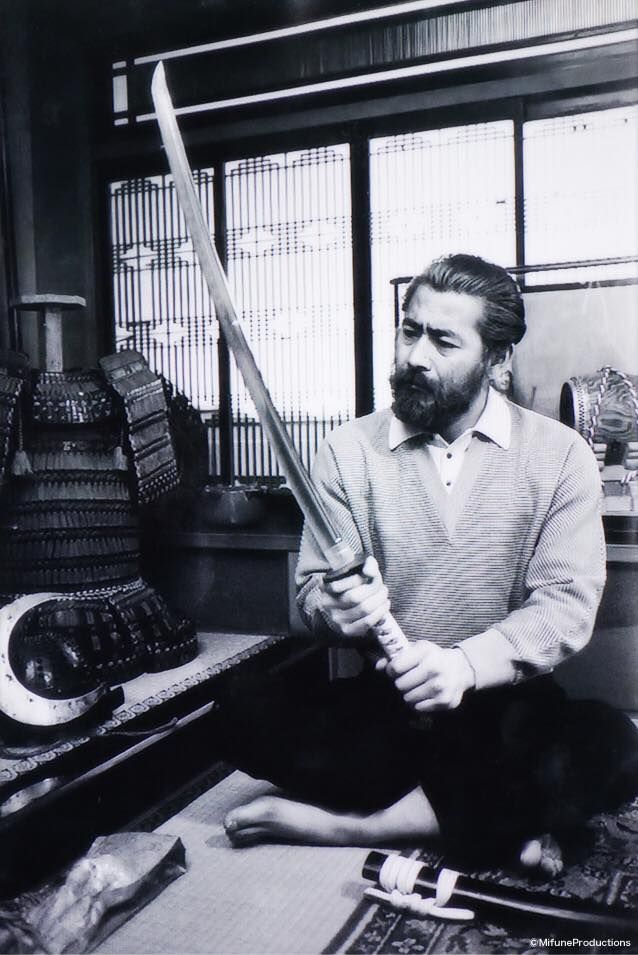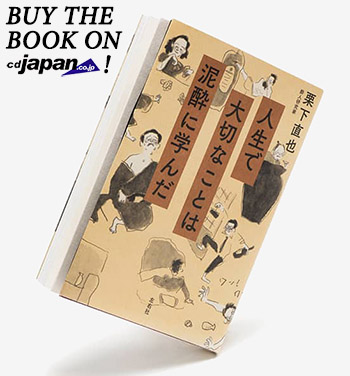Mifune Toshiro
If you start throwing punches at the yakuza
Actor | 1 April 1920 – 24 December 1997
Mifune Toshiro is a movie star surely known by everyone.
Joining the Toho film company in 1946 and debuting the following year in the film Snow Trail, he won the San Marco Golden Lion at the Venice Film Festival in 1951 for his role in Rashomon, making him famous worldwide. Similarly at the Venice Film Festival he also won the Best Actor Award twice, for Yojimbo and Red Beard.
In 1962, he established Mifune Productions, achieving success with large-scale works including The Sands of Kurobe and Samurai Banners. He also starred in foreign films, such as Red Sun and Shogun. Furthermore, he made his name by appearing in several films that now remain etched in Japanese film history, such as Seven Samurai, The Rickshaw Man, and High and Low.
He was also highly influential in the overseas film industry, as evidenced by the fact that he was offered the roles of Obi-Wan Kenobi and Darth Vader in Star Wars (which he ultimately turned down). In 2016, his name was inscribed on the Hollywood Walk of Fame.
And yet to me, as someone born in 1980, Mifune Toshiro somehow feels very distant. It’s not that I don’t watch old movies either. I don’t know, maybe I’m just more of an Atsumi Kiyoshi kind of guy. When I was watching the 38th film in the Otoko wa Tsurai yo series, Tora-san Goes North, I remember thinking to myself, “That’s one dirty stubborn old guy.” I was shocked to later learn how that man was Mifune. I could see how Atsumi was somehow holding back with him as if he was some big shot or something.
Turns out he really was a big shot.
In the film, Mifune plays a widower while Takeshita Keiko plays his daughter. As someone who always preferred Takeshita Keiko to Hara Taira on a certain unnamed TV quiz show, I was watching the film in exasperation, going, “Don’t you take an attitude with Takeshita Keiko, you old geezer!” Even now when I think of “Mifune Toshiro,” I only picture his de facto wife’s daughter’s ex-husband singing and playing the harmonica.
I’m able to recall the lyrics to songs by any obscure artist you could name, and yet with Mifune I only have a vague memory of what he looks like. I actually had to do a Google image search to remind myself. But in doing those Google searches, I learned something else.
There are a ridiculous number of Showa era actors who were also major drunkards.
One such major actor who passed away in recent years was Matsukata Hiroki. Beat Takeshi, who is himself known for his generosity and paying for people who happen to be in his presence, acknowledged Matsukata.
One time that really surprised me was when we went out to the best steak house in Kyoto. It was five of us dining, and the total came up to 20 million yen (USD $180,000). Matsukata paid for it all by himself. Just like that.
(Shukan Post, 2017/02/10 issue)
I wonder what the breakdown of a 20 million yen steak house bill would look like. I’m curious about the specifics…
And speaking of similarly extravagant film actors, one must not forget about Katsu Shintaro. Many were aware of his, shall we say, “parades” that took place in the entertainment districts. Mind you, this wasn’t just your usual thing of a celebrity taking his followers out drinking in town. In Katsu’s case, he would literally approach random people on the street and invite them along for drinks. He’d get three or four people together, from taxi drivers to street solicitors to even just people who happened to be passing by, but things would often escalate and suddenly his entourage would have swollen to a dozen or so drinkers. And once the drinking was on, it was on. Naturally, Katsu would pay for everyone’s drinks, going so far as to buying full bottles for people he’d only just met.
Singer Mizuhara Hiroshi, who came to be known as a sort of “little brother” to Katsu, followed him in his footsteps. He tried to pull off similar “parades,” but in doing so he got himself into so much debt that he was for a time chased out of the industry altogether. Ordinary people might do best not to try and copy these guys.
By the way, Katsu’s actual brother, Wakayama Tomisaburo, was the exact opposite of his brother in that he was a non-drinker. (He had a sweet tooth, being an especially big fan of shiruko porridge.) The young Takakura Ken—who didn’t know Wakayama was a non-drinker—once gifted him alcohol as a token of gratitude. Wakayama, while troubled by this, wanted to show Takakura what a manly man he was, and so he started drinking in front of him straight out of the bottle. He got drunk as a skunk, as one does, and the day’s filming had to be cancelled.
Ishihara Yujiro was also known to be a heavy drinker. When Watari Tetsuya joined film company Nikkatsu, he was advised by someone from their PR department to go and say hello to everyone at lunchtime. When they went over to the canteen, they found a man throwing back beers all by himself—Ishihara Yujiro. He was the only person allowed to consume alcohol when at the film studio. They always had beer reserved for him during filming, and he would be taking swigs between every single take.
Getting back on topic…
While people like Matsukata, Katsu, and Ishihara were all drunkards, they were at least known as “clean” drinkers. Mifune Toshiro, on the other hand, despite being one of Japan’s most famous actors and despite his handsome looks in his younger days, he was—funnily enough—known to be an absolutely terrible drunk.
According to Matsuda Michiko’s book Samurai Hyoden Mifune Toshiro, once Mifune took the cork off a bottle of whisky, he was not satisfied until the bottle was empty. What with his personality never allowing him to leave even a drop, as he kept downing bottles of whisky on a near nightly basis it naturally led to an ever-increasing amount of intake. Mifune, perhaps himself aware of the dangers of his behavior, would mark on his glass how many drinks he’d had so as to keep count, endeavoring not to drink more than a predetermined amount.
He would, of course, always cross the line anyway. Such is the sad nature of us tipplers.
When a person crosses that line, they change. They yell, they go crazy, they just become a major pain in the ass. When someone reaches that stage, it’s a relief when they just hurry up and go to bed. But that was not how our “Mifune of the World” operated, oh no.
You see, Mifune was world-class—even when it came to drinking.
When he was drunk, he would go out to his garden for “sword fighting practice.” There, he would swing around a real sword night after night, causing people around him to be on edge. His family asked friends and acquaintances to intervene, going so far as to pleading with Kurosawa Akira for his help, but even he was unable to stop Mifune. I have to take my hat off to this level of drunken vigor. The guy was practically a one-man Seven Samurai!
But while surely everyone around him was troubled by all this, the thing with past events is that they often tend to be viewed through rose-colored glasses. One insider recalls:
In his sword fighting, he always kept his lower back braced. What made him different from other actors was his discipline. It was to the extent that he could even seem eccentric. […] I think most of it came simply from his daily hard work.
When you get so schnockered that not even Kurosawa Akira can stop you from swinging your sword around, I’m not sure if “discipline” or “hard work” are the most accurate terms to use. And his behavior didn’t just seem eccentric—it was more like the textbook definition!
In fact, Mifune would sometimes even swing his sword around indoors, managing to destroy a piano and damage a house pillar in the process.
There’s a well-known story from another time when he was at a dinner party where he got into an argument with an acting buddy of his. Mifune became enraged, and just when people assumed he’d gone back home, he reappeared at the party, car engine roaring, and fired bullets at his friend’s house. The leading theory seems to be that the pistol he used had been meant for filming purposes. Even so, this was completely unhinged behavior. Scary stuff!
But even Mifune—someone who seemed invincible when wasted—had at least one rather chilling experience in his life. In his book Eiga Haiyuu, Ando Noboru, Yamaguchi Takeshi writes about Mifune’s entanglement with Ando Noboru, captain of a legendary gang of hooligans.
Mifune, deep in his cups, got in a taxi with Ando. The two had just met for the first time that night. Suddenly, for no reason at all, Mifune punched Ando in the face. Understandably, Ando was not terribly happy about this. As it was their first meeting, he could not contain his anger.
He kicked Mifune with all his strength, dragged him out of the car, and beat the living hell out of him, leaving him lying there half-dead.
Ando left Mifune lying on the road unconscious, and returned home. Mifune was filming a movie at the time, and apparently the set was in turmoil when he suddenly turned up with his entire body covered in bandages.
Normally, Mifune was a meticulous, soft-spoken person. I’d like to say in his defense that one time when the river near his house flooded, Mifune brought out his own motorboat and personally rescued inhabitants in the area, receiving an official commendation from the police. This story speaks to his strong sense of justice.
Perhaps it was that the more he suppressed his emotions in his everyday life, the bigger the recoil when he drank. But ultimately, it doesn’t matter whether you’re “Mifune of the World” or just a “dirty stubborn old guy“—if you become violent in your drunken stupor, you’re going to get punched in the face just the same.
Even if you get black-out drunk, even if you go swinging around a samurai sword in front of your family, the one thing you have to be careful about is not messing with the wrong people.
No movie heroine is going to come running to save you if you do.




